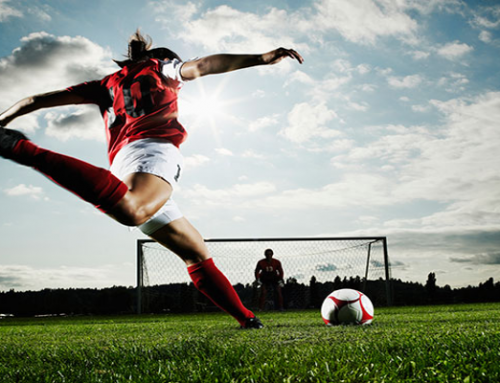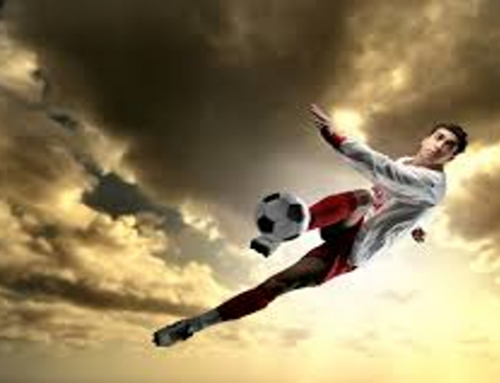I am always looking for convincing evidence to demonstrate that soccer is a game of mindset. Here’s one – Did you recently see the ‘dive’ that the Werder Bremen player, Aaron Hunt, admitted to making? He managed to change the decision of the referee in the moment. His ability to think quickly (to judge his own behaviour) holds clues to the fact that a soccer player can use her brain more efficiently as she competes. Here’s how.
The soccer brain works in milliseconds. It beats away invisible to the eye, but heavily influences decision and performance. You can see this in action as Aaron Hunt gets to his feet and makes an immediate decision to inform the referee that he dived (or at least tripped over his own feet.) A sporting gesture that demonstrates the speed in which the brain works and the link between it’s functioning, problem solving and decision making.
It’s useful for players to understand that because the brain works so quickly, it only takes a couple of seconds to have an in-game check-in related to performance. Any kind of check-in can pose the question: “How am I doing? What do I need to keep doing? Do I need to change anything?” That is smart thinking, not over-thinking.
Do your players have in-game check-in moments? If you’re a player yourself do you conduct speedy check-ins as you compete?
We ask players to compete with intelligence yet do we give them a platform to do this? A part of game intelligence is flexible thinking – the ability to notice what is happening during the game and adjust accordingly. Yet few coaches ask players to do this. Few players demand it of themselves.
Check-ins can happen during any downtime, whether the ball is out of play or up the other end of the pitch. It’s tougher for a midfielder who has less time away from the action – but he or she can utilise a natural break in play such as an injury.
Many players are scared to do this because they claim they don’t want to over-analyse as they play. And I must admit I am always at pains to say that soccer players need to be less judgmental as they compete. But competitors who want to be the very best they can be should allow a very small window of judgment – the briefest of moments to conduct a personal inquiry into their game and the game.
It just requires those two very quick and simple questions – “What is going well that I need to continue? Is there anything I need to stop doing or start doing?”
Answer your own inner voice, your own question, quickly and without hesitation. Affirm what actions you need to take and move on. It takes practice but over time you’ll start to build a robust self-talk – one that helps you manage your mindset in the moment and think flexibly.
Remember, football psychology is teaching us lots of things about our brain. What we know is that it works in milliseconds. Treat it as such and use it with that fact in mind.
That Aaron Hunt dive – http://www.bbc.co.uk/sport/0/football/26522196 Courtesy of the BBC




